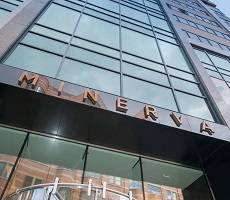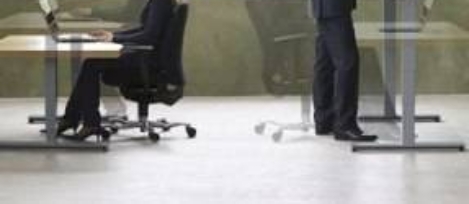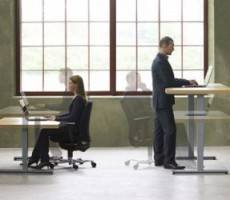February 29, 2016
Full employment drive can help over a million more UK over-50s into work 0
 The UK government should find ways to encourage more than one million more over-50 into work by the end of this parliament, claims the Resolution Foundation think tank. The call comes ahead of a final report this week following a nine-month investigation into the issue full employment. The Chancellor announced a commitment to full employment in last year’s Summer Budget, with the government committing to report annually on progress towards this objective. The Foundation says that support for the over 50s, particularly to keep them from leaving the labour force, should be at the heart of the government’s strategy. Older people have contributed the fastest jobs growth of any age group over the last decade, leaving employment rates for workers aged 50-64 and 65+ are at record highs. The Foundation says that previous progress shows this group can and should be at the centre of plans for realising full employment.
The UK government should find ways to encourage more than one million more over-50 into work by the end of this parliament, claims the Resolution Foundation think tank. The call comes ahead of a final report this week following a nine-month investigation into the issue full employment. The Chancellor announced a commitment to full employment in last year’s Summer Budget, with the government committing to report annually on progress towards this objective. The Foundation says that support for the over 50s, particularly to keep them from leaving the labour force, should be at the heart of the government’s strategy. Older people have contributed the fastest jobs growth of any age group over the last decade, leaving employment rates for workers aged 50-64 and 65+ are at record highs. The Foundation says that previous progress shows this group can and should be at the centre of plans for realising full employment.

































February 24, 2016
Three workplace performance indicators that may make or break you 0
by Matias Rodsevich • Comment, Technology, Workplace, Workplace design
Want to find out how your business is performing? Setting and analysing performance indicators for your company is the best way to forecast and get on track with your business goals. Creating Key Performance Indicators will help you measure your company’s success. While choosing the right KPIs relies upon a good understanding of what is important to the organisation and its workplace , the question is what to focus on? Performance measurement is not just related to collecting data associated with a predefined performance objective or standard. It has to be considered as an overall management system involving prevention and detection in order to meet clients expectations of the service or product you’re offering. Many companies have different methods regarding performance measurement, so how you measure performance says a lot about your company’s objectives and will decide whether they make or break you.
There are two common types of performance indicators: financial and customer focused.
Financial indicators are the most commonly used metrics for performance including: revenue growth rate, net profit, return on investment, among others. In terms of employee performance these are often quantified using output related measurements. These can be useful for growing your company’s finances but companies that focus solely on profit related indicators often face an innovation problem.
A focus on financial goals can put pressure on managers to focus on short term profitability over creativity. Financial indicators also don’t provide a full picture of a company’s performance. Rather than taking risks on new ideas, these companies can become known for creating ‘one hit wonders’ that sell and repackaging past successes. Eventually, quality and customer satisfaction can become compromised and employee motivation drops.
Microsoft learned this lesson at the expense of its top spot in the tech world. Originally a leader in cutting edge technology, after 2000 it began slipping in the rankings against companies like Google and Apple with its inability to keep up with new trends. As these companies began producing paradigm shifting products like the iPhone and Google Maps, Microsoft continued to survive off of its updated versions of Windows Office. Financial indicators demonstrated the company’s shift in popularity but not the contributing factors.
Internally, Microsoft had taken a cut throat approach to performance management called stack ranking. In this system employees were ranked according to their performance, with the top being put in line for promotions and the bottom 5-10% being shown the door. Rather than boosting productivity, this system merely increased competition and discouraged teamwork. Ultimately, instead of being encouraged to collaborate on new ideas, employees had to focus on gaining favor to survive.
Customer success indicators are increasingly seen as the most important performance metric. Some of the main customer centred KPIs include: conversion rate, customer retention, Net Promoter Score (NPS), etc. Due to differing objectives, companies that focus on customer centred indicators focus more on gaining a loyal customer base by producing great quality products, utilizing different marketing techniques and emphasizing a strong customer support service.
However, for companies that don’t take off straight away, the money and time put into each product can lead to slower profit generation and financial instability. Furthermore, while customer satisfaction is an extremely important key to success, what customers ultimately want are state-of-the-art products. Though customer focused indicators can help you build a loyal client base, they do not necessarily solve a company’s innovation problems.
Companies should use a combination of both financial and customer focused indicators but there is a third key measurement which is essential to meeting your company’s goals.
Why employee centered indicators are so important
More and more companies are beginning to realize the importance of employee centered metrics. These types of indicators include: employee engagement, satisfaction and turnover.
Studies show that higher employee engagement is linked to higher customer satisfaction. When employees are happy at work and believe in their product/company this comes across to customers. Gallup revealed that companies with high employee engagement levels outperformed companies with lower levels of engagement in customer ratings by 10%.
Engaged employees take less sick days. A study by Workplace Research Foundation found that engaged employees take an average of 2.69 sick days annually compared to disengaged employees who take an average of 6.19 days. Most important, they’re motivated to achieve more. Gallup’s study also showed that engaged companies outperform others in productivity by 21% and profitability by 22%.
In fact, the treatment of employees is also an important factor for consumers. Deloitte’s 2015 study on millennials revealed that this generation considers the treatment of employees as the top characteristic of industry leaders, even over profit generation and impact on overall society. Furthermore, “While they believe the pursuit of profit is important, that pursuit needs to be accompanied by a sense of purpose, by efforts to create innovative products or services and, above all, by consideration of individuals as employees and members of society.”
Companies that have employee centered strategies are also more likely to foster innovative environments that promote autonomy and employee ownership. Atlassian became famous for its ‘Shipit’ days during which it actually encourages employees to drop their work and spend twenty-four hours on a creative project of their choice. Allowing employees the freedom to try out new ideas sounds like a great financial risk but it turned out to have great returns. The projects developed during these sessions have resulted in some of the company’s most profit generating products. Atlassian not only dominates Australia’s tech industry, it has also been named the best company to work for the past two years in a row.
More and more companies have started focusing on an employee first strategy: In an interview with Inc. Virgin Atlantic CEO Richard Branson disclosed that the company puts staff first, customers second and stakeholders third. He explains, “If the person who works at your company is not appreciated, they are not going to do things with a smile.” Southwest Airlines, the company consistently reaching the top 10 in employee and customer satisfaction surveys, follows the same ideology. The company does this by motivating employees through its company values and creating an environment that regularly recognizes employees for going above and beyond.
Southwest Airlines follows the same strategy. Founder Herb Kelleher posited, “A motivated employee treats the customer well. A customer is happy so they’ll keep coming back, which pleases the shareholder. It’s just the way it works… They can buy all the physical things. The things you can’t buy are dedication, devotion, loyalty—the feeling that you are participating in a crusade.”